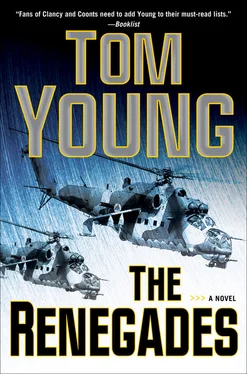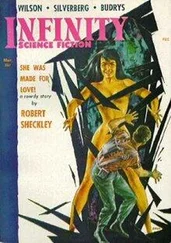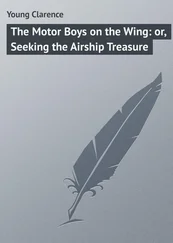Even before all the wounded were treated, the OSI began investigating the bombing. Inside the air ops center, Gold interpreted for three terrified Afghan gate guards. None looked older than twenty. One trembled as he sat at the table with the other two.
“Will I be imprisoned?” he asked in Pashto. The man looked at Gold with the eyes of a frightened animal.
Gold wasn’t sure of the answer, so she said only what she knew: “They have not handcuffed you, Private. Because you are not bound, they are treating you as a witness and not a suspect.” She meant for that statement to give the young man relief, but his shaking did not stop.
This OSI agent was not the one who’d questioned Aamir, and he did not give his name. He began by saying in English, “Gentlemen, I ask that you tell me the truth. Whatever you’ve done or not done, telling me the truth might not improve your situation. But I promise it will not make it worse.”
The agent never shouted or threatened. Gold appreciated his manner, but if anything that just seemed to scare the guards more.
“Please tell him we are not terrorists,” the trembling man said.
The OSI agent placed a photo on the table. The picture showed the face of the suicide bomber—eyes still open, head ripped away at the neck by the force of the blast. Skin remarkably unburned, with the smoothness of childhood. A sight, Gold thought, that violated every notion of decency in any kind of society.
“I do not remember that face,” another guard said.
“Neither do I,” the third said. “Truly, I would tell you if I did.”
Gold believed them. They’d probably paid the boy no notice. And that’s how he’d gotten in to kill eighteen people and injure thirty-four.
At the end of the interrogation, the agent said the guards were free to go. The Afghans seemed hardly to believe it when Gold translated that bit of news. Perhaps they’d expected to be taken outside and shot. After they left, Gold hung around the air ops center until no one remained in the flight planning room. Her cell phone displayed no signal, so she lifted the receiver of a landline phone. She wondered for a moment if the line was monitored or recorded. Then she decided that was the least of her problems. Fished the scrap of paper from her pocket, unfolded it, and punched in the number.
The phone line hissed, clicked, popped. Phone service remained out over much of Afghanistan, and she’d not necessarily expected the number to work. But then it began ringing on the other end. After ten rings, Gold started to hang up. That’s when someone answered. A male voice said only, “Yes?”
She put the receiver back to her ear, glanced through the doorway to see if anyone was coming in. No one was there.
“This is Sergeant Major Sophia Gold,” she said. “I met with the wife of—”
The voice interrupted her. “I know who you are, American. You wish to speak with Mullah Durrani.”
Gold collected her thoughts, tried to remember what she’d planned to say.
“That is correct,” she said. “My superiors will not likely approve a face-to-face meeting. May we do this by telephone?”
“You may not. The mullah does not use electronic communication. If we allow this meeting, you will see him in person, and only on our terms. Is that clear?”
The answer she’d expected, but it had been worth a try. So she said only, “It is clear.”
“Our terms are this: You will come alone. You will come unarmed. Needless to say, we will search you. If we discover anything that looks as if it might be a tracking device, we will kill you. Your body will never be found. We will make no claim of responsibility. You will simply disappear, and your friends and family will never know what happened to you.”
The man sounded like an educated Pashtun. Perfect grammar, each word enunciated with precision. Probably middle-aged. As he issued his threat, he did not raise his voice, did not seem excited at the prospect of an easy kill. His tone lacked all bluster, but it lacked caution as well. He spoke with confidence. Gold knew she should not read too much into the sound of a voice on a scratchy phone line. But the man sounded like someone accustomed to taking life, though tired of it.
Careful, she told herself. Don’t just hear what you want to hear. If you meet with these people, it could be the most dangerous mission you’ve ever undertaken. And even if the mission doesn’t kill you, it could end your career.
“I understand,” Gold said.
“If you agree to these terms, you will see the mullah tomorrow.”
“I am not sure if—”
“Then you will not see the mullah.” Still no raised voice, no contempt or irritation. Just a statement of fact.
“All right. Tomorrow. How may I find you?”
“You will arrive at the home of Mullah Durrani’s wife and daughters at oh-nine-hundred local time. You will be blindfolded and driven to the mullah. Assuming you do nothing foolish, we will return you to your vehicle in time for you to get back to Mazar by nightfall.”
Gold wasn’t sure how to wrap up the conversation, what attitude to take. She opted for courtesy. It usually didn’t hurt.
“It is kind of you to make these arrangements,” she said.
A pause on the other end. Perhaps this was strange territory for him, too. The man said, “We do not act out of kindness, American. Know this: We bear you no goodwill at all. However, in this briefest of moments, we may have a common purpose.”
“I believe we do,” Gold said. She kept assessing what she heard. And she noticed what she wasn’t hearing—the three words that had come out in nearly every other conversation she’d had with a Talib, usually a man in shackles: Bitch. Whore. Infidel. This man clearly did not like her, but he showed no disrespect.
“Please follow our instructions to the letter,” the Talib said. “Otherwise, we will eliminate you.”
Please? Whatever these people intended, it was certainly different. Without another word, the man hung up.
* * *
With Gold loaned to interpret OSI interrogations, Parson made do without her as he helped coordinate medical flights. An Afghan crew in a beat-up C-27A flew in from Herat and picked up a load of patients. Parson tried to talk to the aircraft commander, but the man spoke such poor English that conversation was impossible. He kept talking about grass, and Parson started to wonder if he was some kind of pothead who needed his wings taken away. Then Parson realized the poor guy was just trying to talk shop. The man had seen pictures of the new C-27J. The J model had computer-screen flight instruments—a glass cockpit, as fliers called it.
“I hope they get that model for you,” Parson said. “Once you’ve flown glass, you’ll never want to go back to round dials.”
The man looked at him blankly. Figures, Parson thought. I let Sophia out of my sight and everything goes to hell.
An American C-130 picked up another load of patients—U.S. military personnel and European aid workers. The big turboprop growled off the runway and headed for Germany.
Rashid landed as the sun sank low on the horizon. Parson greeted him inside his aircraft as soon as the rotors stopped. At least Parson could converse with Rashid, however haltingly.
“Good work, buddy,” Parson said. “You took some wounded to the hospital in Kabul?”
“We fly sortie,” Rashid said. He unbuckled his harness, took off his helmet. His black hair looked matted and sweaty. Rashid’s ad hoc crew—copilot, flight engineer, and crew chief/gunner—unstrapped and walked to the perimeter fence to smoke. Rashid watched them as if he wanted to go with them.
Читать дальше












